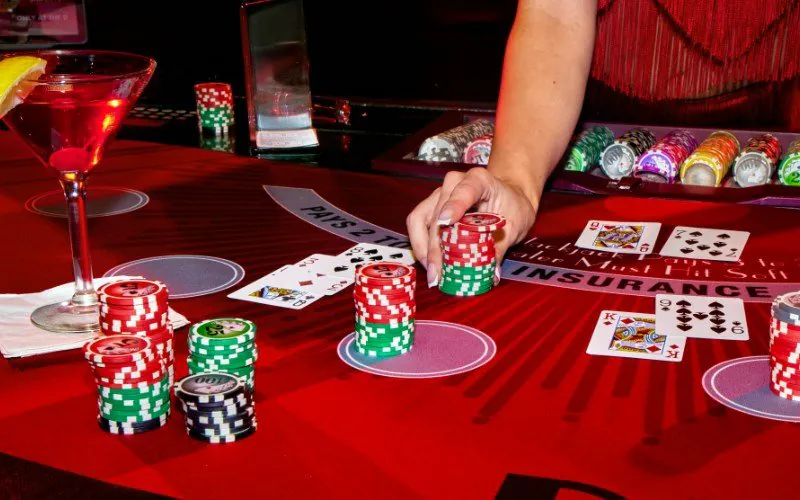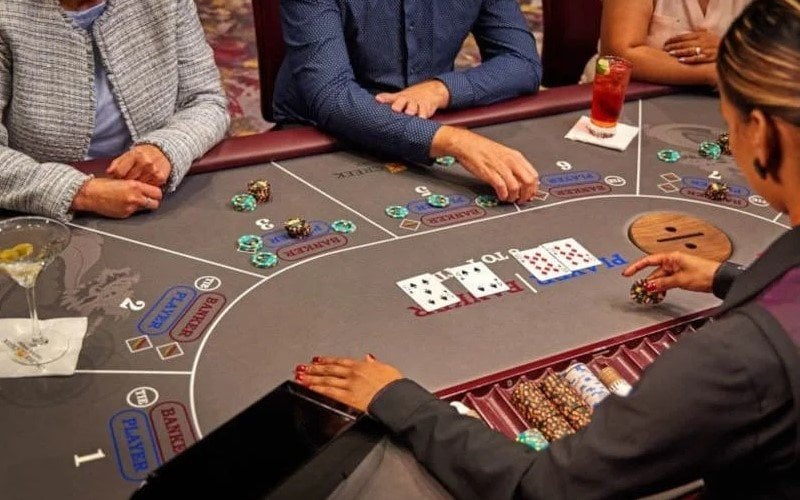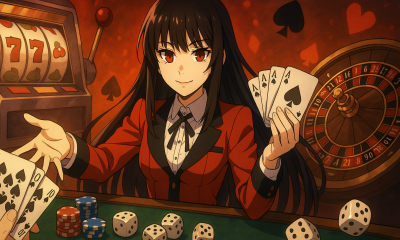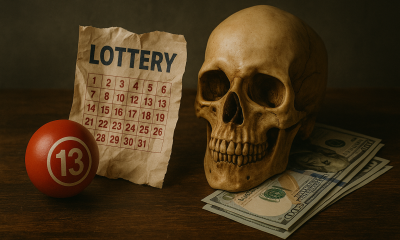Psychology
Gambling and Stress: The Role of Cortisol in Betting

Behind the joys and quick thrills, gambling can also produce high levels of stress and anxiety. The obvious areas include when you are losing, or the build-up and anticipation of what may happen. But the stress levels during gambling can extend far beyond a game of roulette or spinning the reels in a slot machine. Prolonged gambling stress can produce sleep disturbance, raise your blood pressure or even exacerbate feelings of anxiety or depression.
We all react differently to the risk-taking, and highs and lows of gambling. Some people are more vulnerable to these high levels of gambling stress and may be familiar with these maladies. But gambling doesn’t have to be a stressful endeavour. You can learn how to manage your stress levels, and expectations through good practises. And then, you can enjoy the games in the way they are intended, as a source of entertainment and exhilaration.
How Gambling Can Induce Stress
Any activity that involves taking risks is bound to raise your stress level. Before you take the risk, you weigh up the options and factor in how a loss will affect you. Your body reacts by releasing a hormone called cortisol, which is produced by your adrenal gland. This hormone is useful in the short run, increasing your immune response and stimulating your fight or flight mechanism. You will feel more alert, and can concentrate better on the task ahead.
The uncertainty of whether you will win or not is the driving force behind this physiological response. Cortisol surges when we are afraid of something or when we are taking a risk. This influx of cortisol can be extremely stimulating, something casinos can use to get you excited. Whether you win or lose will also impact your cortisol levels.
A win eases off the pressure, and your cortisol level will drop temporarily, leading to a surge of relief. A loss, on the other hand, will sustain your level of cortisol. If you have lost repeatedly or taken a big financial hit, the cortisol levels may heighten. This is when we feel a gambler’s remorse, followed by an impulsive urge to play again – in the off chance we can make that money back. It all works in the casino’s favour, as either way you will want to take another shot at it.

Cortisol vs Dopamine – Balancing Stress With Joy
Cortisol hormones are associated with negative feelings in gambling. The build-up and losses are scenarios that trigger our bodies to release cortisol. But our bodies can also respond by releasing dopamine, the pleasure hormone. It is most prominent after a win. When you take the risk and get the reward, your brain releases dopamine, balancing out the cortisol. A sweeping feeling of joy takes over, and this is often followed by an impulse to have another go, in the chance that you will win again. However, you shouldn’t think of it as a black-and-white process. You don’t just get dopamine on a win, or only cortisol if you lose.
Cortisol and Dopamine Regulation
Dopamine is also released before you place your bet, at the same time as an increase in your cortisol levels. Essentially, your body is responding to the fear of losing, but also reveling in anticipation of a win. This continues as the game unfolds, whether it is a card being drawn, a roulette ball spinning around the wheel, or watching a sports game. If you win, the dopamine levels will spike, and it reinforces your risk-taking behaviour. But after the win, your adrenal gland can still release cortisol, as you wonder whether you can pull it off again.
Losses should not all be treated equally. Sometimes, you will come close to a win and only miss by a narrow margin. It may be landing the adjacent number in a game of roulette, or falling 1 symbol short of hitting a payline in slots. This near miss doesn’t register as a straight loss. Your brain may release dopamine in response, as you were so close to a win, that you may just get it in the next round. An unmistakable loss won’t trigger such a reaction, but you may feel a spark of joy thinking about the possibility of winning the next round.
Psychological Effects of Raised Cortisol
So your dopamine and cortisol levels will both increase and fluctuate during gaming. Unfortunately, in terms of stress felt, the dopamine doesn’t cancel out the cortisol. After time, your dopamine regulation alters, and you may start to feel diminished levels of joy even when you win. Loss aversion is a phenomenon in which a win doesn’t feel as good as a proportionate loss feels negative. Should you win $100, your joy doesn’t feel as good as your pain if you lost $100.
Loss aversion can be felt to different degrees, and it will likely worsen after prolonged gaming. The little your elevated dopamine did to balance out the stress will only get smaller as you feel less joy from the wins. This can prompt players to buy into fallacies, in the renewed hopes that they can hit the winning highs.

Cortisol-Related Gambling Fallacies
Cortisol activates our focus levels in the short term, but prolonged high levels of cortisol can have the opposite effect. We become more reckless and make impulsive decisions when under prolonged and mounting stress. Players may also become more desperate in their expectations and form a number of cognitive biases.
In desperation, we can try to respond by looking for patterns in the results, or attempt to predict the outcome. Casino games are not designed to produce such results. Any patterns you find are purely based on coincidence and will have no bearing on what happens next. But with high levels of stress, you may feel compelled to make riskier decisions and test these fallacies.
Or, you may feel unable to quit. This is a classic case of the sunk cost fallacy. You have already sunk so much money into the game, so wins must be around the corner to create a balance. That is just wishful thinking, and as the house edge favours the casino, you are more likely to go bust than climb back to square one. Accepting these losses and quitting is extremely difficult, but you must be prepared to do so. If for no other reason, than to salvage whatever you have left in your bankroll.
How Gambling Stress Impacts You in the Long Run
Short term, these levels of stress can build anxiety and even induce depression. But they are far more dangerous in the long run. On a psychological level, you may feel lowered self-esteem or an inability to form confident decisions. Physically, it can increase your blood pressure, something that can cause cardiovascular problems. You may also experience sleep disturbances, or find that your stress levels rise quicker than before.
If you are familiar with any of these feelings or have felt them before, then you should immediately take a long break from gambling. Casino games should not be used as a form of escapism, or to alter your dopamine levels. If you feel stressed, anxious, or depressed before gaming, don’t play. It can alter your stress-reward cycle, and lead to pathological gambling or addiction.

Managing Gambling Stress
The best way to avoid getting too stressed or worked up is to take regular breaks during your gambling. It can help you find your center and avoid falling into fallacies that would have you playing til you go bust. If you feel ready to have another go, you can return to your games. But there is no pressure to do so, just take the break and see how you feel.
Whatever happens in your gaming, you should never forget that the odds are not in your favour. Casino games are designed to have a house edge, and generally, the bets with the longest odds have the highest house edge. Sure, it feels amazing if you hit a jackpot, but the odds are stacked against you. Never underestimate the odds, and be prepared for losses.
Another good way to ensure you don’t eat through all your money is to set limits. Create a deposit limit and a bankroll. With a deposit limit, you cannot overspend as the casino will not accept your money. A bankroll helps you to allocate your funds, and work out how much you should stake per round. You can make room for losses, and any variance – positive or negative. Learn how to recognize the point at which you have won enough, and will leave. Or, when you have lost enough, and should exit your games.
Ultimately, with a greater understanding of how the casino games work, and an eye on the time, you can handle your stress levels. Casino games can be a wonderful source of entertainment, keeping you on your toes and second-guessing what will happen next. But be mindful of the risks, and take breaks regularly to stay fresh for your gaming.











